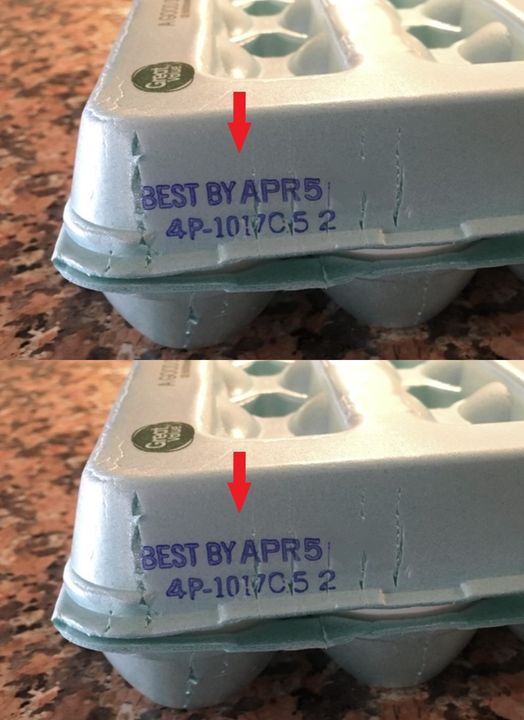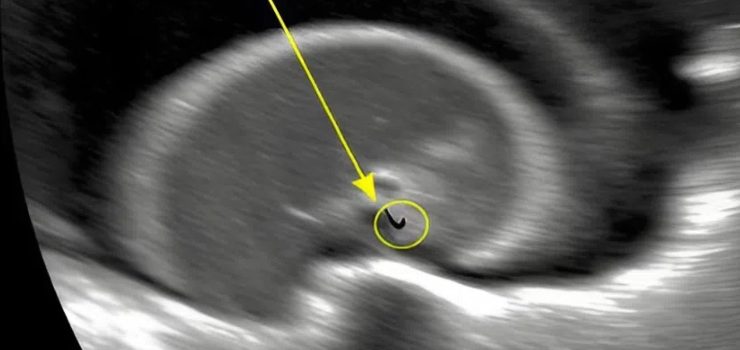A few years ago, I made a quiche for a dinner party and, embarrassingly enough, ended up making everyone sick. Thankfully, it wasn’t bad enough to send anyone to the hospital, but we all felt off—nauseous, uncomfortable, and dealing with some very suspicious stomach sounds. It was mortifying. I was the one who cooked the dinner, and I couldn’t figure out what went wrong.

The eggs I used seemed fine—they weren’t expired, they didn’t smell weird, and visually, they looked perfectly normal. But as it turns out, I had overlooked one tiny detail that made all the difference: the mysterious number on the side of the egg carton. You’ve probably seen it too—a small three-digit code that looks like it belongs on the door of a secret government lab. I never paid attention to it, but it turns out that number is actually called the Julian date, and it tells you the exact day of the year the eggs were packed. For example, “001” stands for January 1st, and “123” means May 2nd. This little number is the key to knowing just how fresh your eggs are, because the expiration or sell-by date can often be misleading. Once I learned about this, my grocery habits changed completely. Now, I scan egg cartons for the freshest Julian date I can find—preferably within the last two weeks.
I know I probably look ridiculous comparing egg cartons like I’m evaluating fine wines, but after one quiche-induced disaster, I’m not taking any chances. Right next to the Julian date is another code that starts with a “P”—that’s the plant code, which tells you where the eggs were processed. At first, this seemed irrelevant to me, until a salmonella recall happened and I had to check if the eggs in my fridge were affected. I’ll never forget that frantic moment of panic, staring at the carton with my phone in hand, trying to decipher FDA recall charts online. Thankfully, my eggs weren’t involved, but that taught me how crucial those plant codes can be. Another thing I used to rely on was the “float test”—you know, drop an egg in water, and if it floats, it’s bad; if it sinks, it’s good. While that’s kind of helpful, it’s not something I’d bet a brunch on.
I now trust the Julian date far more, and I even write a little reminder on the carton like, “Packed Day 134, Use by Day 164,” sometimes adding a sad face next to the toss date. Also, storing eggs in the coldest part of the fridge—not the door—helps them stay fresh longer. Now, let’s talk about all those labels: “Cage-Free,” “Free-Range,” “Organic,” “Pastured.” They sound great, like the chickens are living some farmyard dream, but the reality is a bit different. “Cage-free” just means the hens aren’t in cages, but they’re often still crammed into massive barns. “Free-range” might mean they technically have access to the outdoors, but sometimes that just means a tiny door is opened for a few minutes each day.If you really want eggs from chickens that actually roam outside, look for “pastured.” I’ve bought them, and the yolks are so bright and orange they look like mini suns. The flavor is richer, too—maybe it’s in my head, but I swear by them. And then there are the USDA grades: AA, A, and B. Grade AA eggs are the top-tier—firm whites and high, tight yolks. Grade A is still really good and perfect for most cooking. Grade B? I’ve never even seen them in a regular grocery store. I usually go for AA when I’m making fried or poached eggs, but if I’m baking cookies or cakes, I’m fine with A. One day, I made scrambled eggs with older eggs—36 days past the Julian date. They weren’t expired, but the result was watery and flavorless. A couple of weeks later, using eggs from the same brand but with a much fresher pack date, the difference was incredible—fluffy, flavorful, and totally delicious. That’s when I realized I’d officially become an egg snob. So the next time you’re in the grocery store and someone gives you a weird look for inspecting every egg carton on the shelf, just smile and keep going. You’re not being weird—you’re being smart. Those little numbers on the carton might seem boring, but they’re your best defense against bad breakfasts and worse dinner parties. Trust me.





